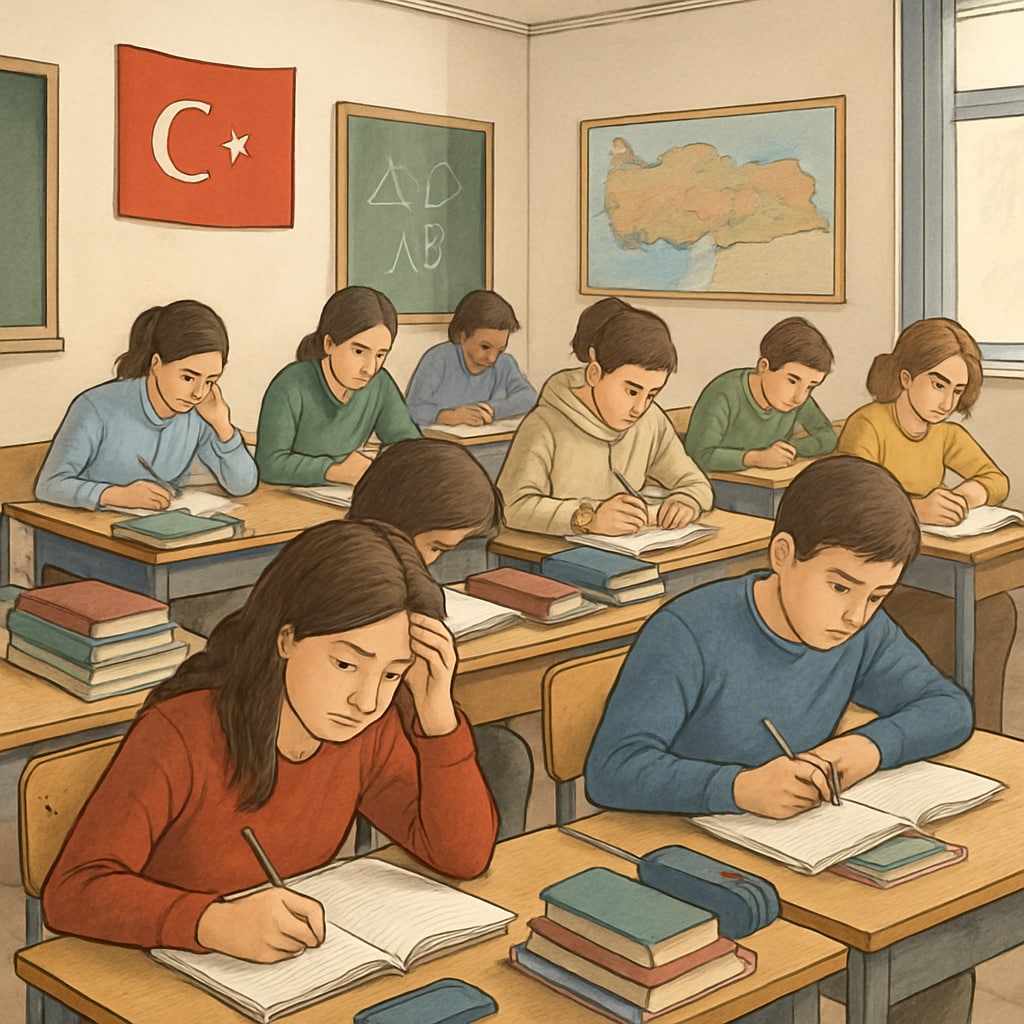The education systems of Turkey and the United Kingdom differ significantly in how they evaluate and prepare students for their futures. Turkey’s centralized exam system, characterized by mandatory all-subject testing, often creates high levels of exam pressure and suppresses student motivation. On the other hand, the UK’s A Levels offer a more flexible and personalized approach, allowing students to focus on their strengths and interests. This article examines the contrasting features of these systems and explores how adopting elements of the A Levels model could inspire educational reforms in Turkey to cultivate future-ready talent.
Challenges of Turkey’s Centralized Exam System
Turkey’s education system relies heavily on centralized exams, such as the Higher Education Institutions Exam (YKS), which require students to be tested in a wide range of subjects, regardless of their individual strengths or career aspirations. While this approach ensures a standardized evaluation, it often leads to excessive pressure and a lack of engagement. Students are forced to study subjects they may not be passionate about, diminishing their motivation to learn and excel.
Moreover, the focus on rote memorization over critical thinking skills limits students’ ability to develop a deeper understanding of subjects. According to Wikipedia on education in Turkey, this rigid system has sparked debates on how to better align education with the diverse needs of students and the evolving demands of the global workforce.

The Flexibility of the UK’s A Levels
The United Kingdom’s A Levels (Advanced Level qualifications) offer a contrasting model that emphasizes flexibility and specialization. Students typically select three or four subjects to study in depth, allowing them to tailor their education to their strengths and career goals. This system nurtures critical thinking, analytical skills, and a genuine interest in learning, which are essential for success in higher education and professional environments.
For instance, a student aspiring to pursue engineering might focus on Mathematics, Physics, and Chemistry, while another interested in humanities could choose History, Literature, and Sociology. This freedom not only reduces exam pressure but also helps students develop a clear pathway toward their future. More information about A Levels can be found on the Britannica page on A Levels.

Lessons for Turkey: Reforming the Exam System
Turkey could benefit greatly from adopting elements of the A Levels model. By allowing students to specialize in subjects they are passionate about, the education system can reduce exam pressure and foster intrinsic motivation. This approach would also align education more closely with the demands of the modern workforce, emphasizing critical thinking, problem-solving, and adaptability.
Key reforms that Turkey could explore include:
- Introducing subject specialization options in high school to prepare students for their chosen fields.
- Reducing the emphasis on rote memorization and focusing on skills development and analytical thinking.
- Providing career counseling and guidance to help students select subjects aligned with their aspirations.
Reforming Turkey’s education system to include these elements could unlock the potential of its students and prepare them to thrive in a rapidly changing world.
Conclusion: Bridging the Gap Between Systems
While Turkey’s centralized exams aim for standardization, their rigidity often stifles student motivation and creativity. The UK’s A Levels offer a compelling alternative, demonstrating how flexibility and specialization can cultivate future-ready talent. By incorporating lessons from the UK model, Turkey has the opportunity to transform its education system, fostering a generation of students who are not only academically capable but also equipped to navigate the challenges of the 21st century.
Educational reform is never easy, but the promise of a system that prioritizes student strengths and interests is worth pursuing. With thoughtful implementation, Turkey can create an education system that truly empowers its students and prepares them to thrive in a globalized world.
Readability guidance: The article is structured with concise paragraphs and clear headings. Lists are used to highlight actionable reforms. Overlapping concepts are avoided by using synonyms and variations of keywords throughout the text.


